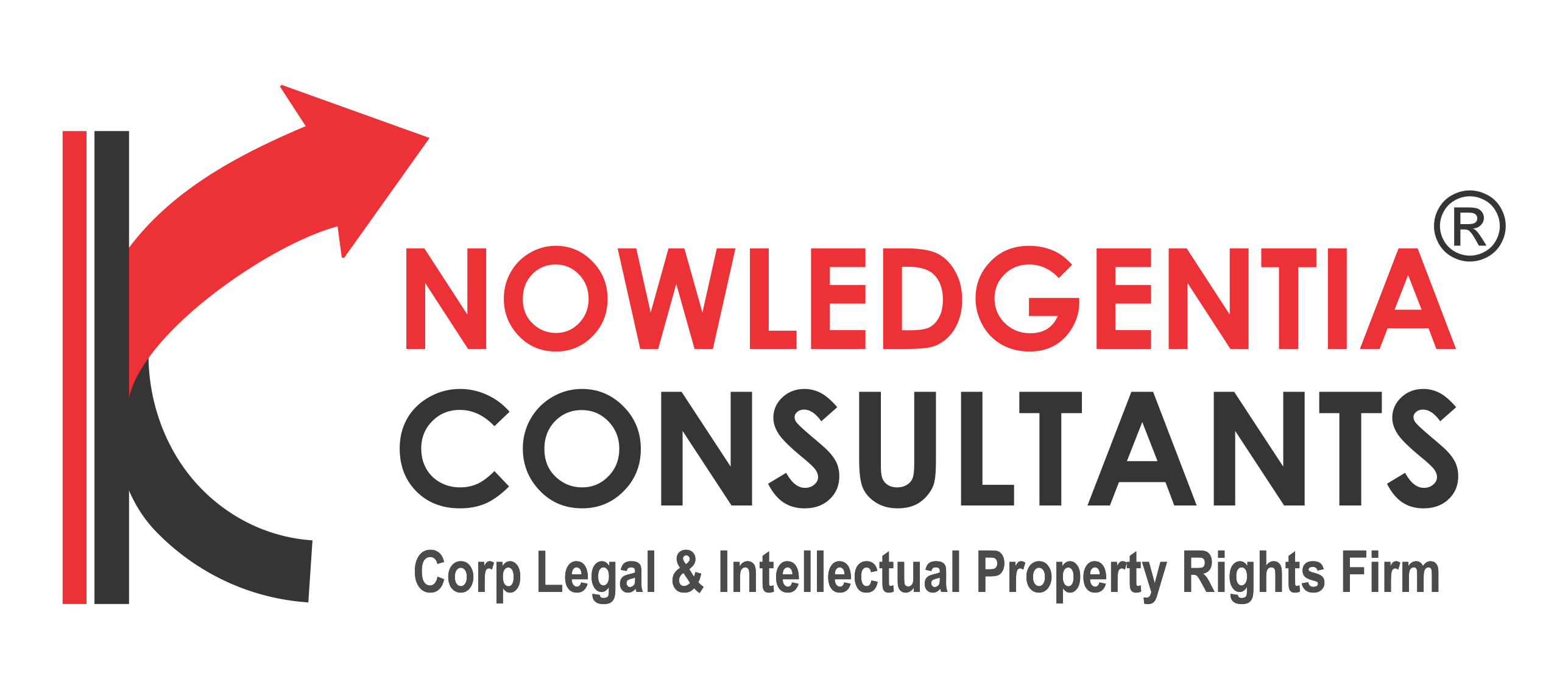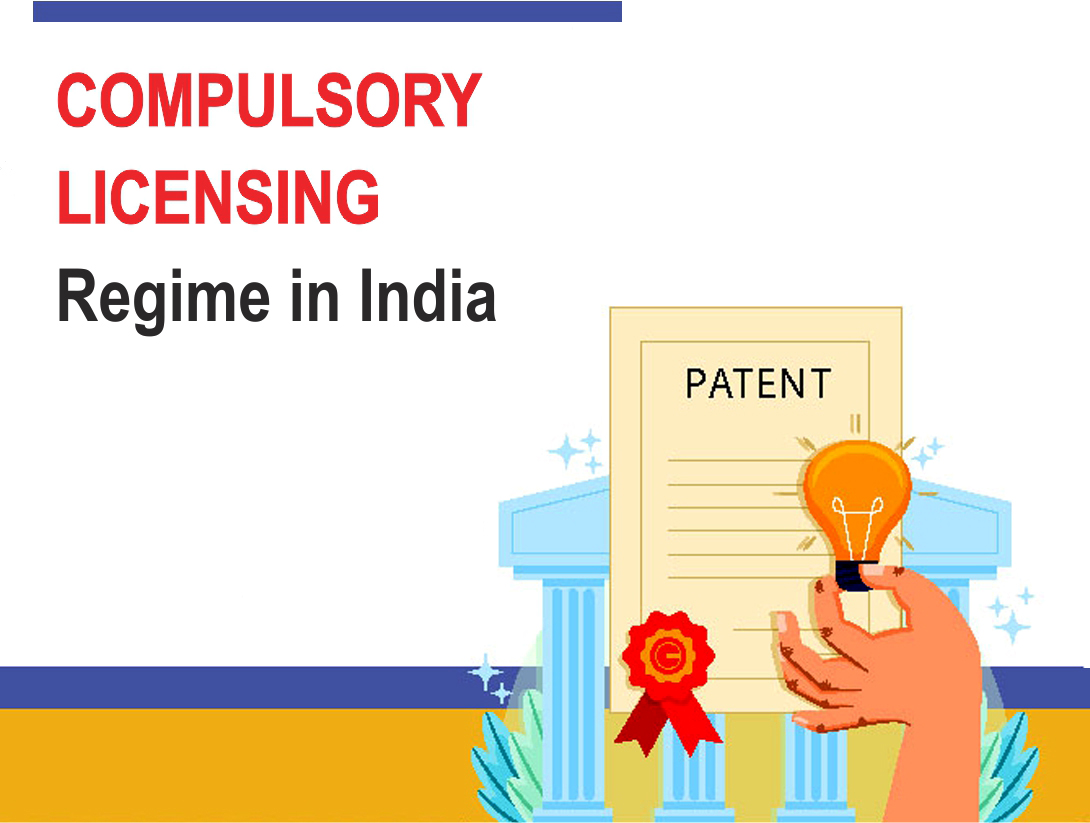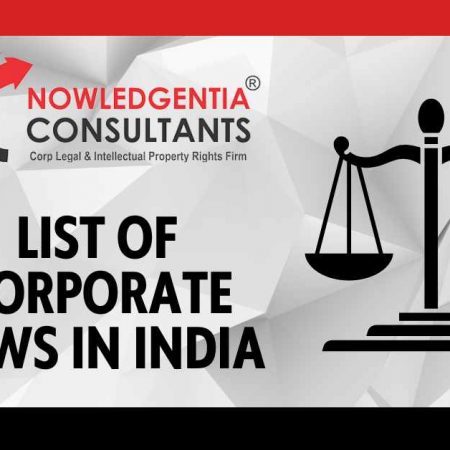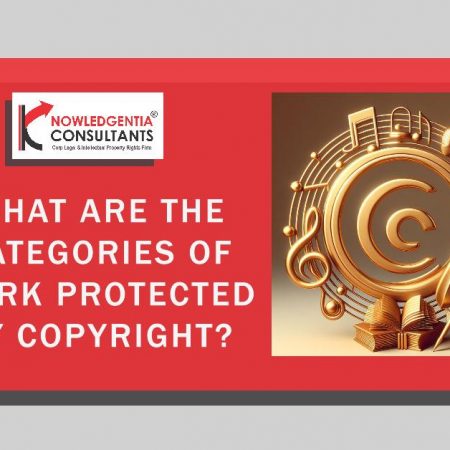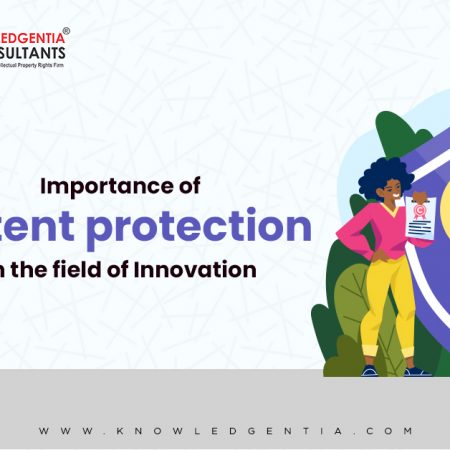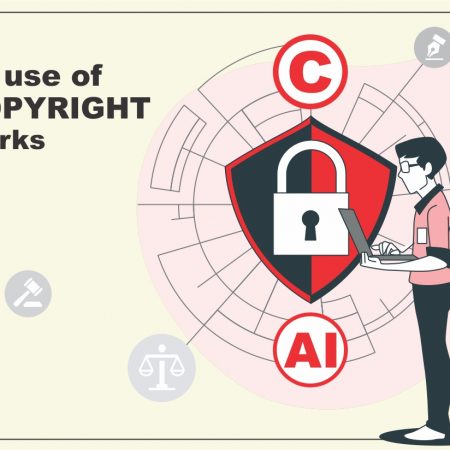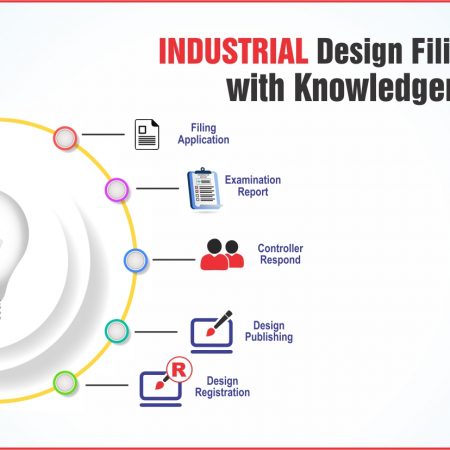COMPULSORY LICENSING REGIME IN INDIA
PUBLISHED ON 10.12.2021 BY MS. APARNA JAIN, MS. HARINDER NARVAN, MS. AASHRIKA AHUJA AND MR. PARDEEP YADAV
INTRODUCTION
Patents refer to a license granted for an inventive product or a process and empowers the owner with an exclusive right to prevent third parties from exploiting the patented product or a process. In India, a patent is granted when any product or a process fulfills three criteria’s of novelty, inventive step and industrial application. Limited access to patented products and processes especially in sensitive matters for instance in pharmaceutical sector has resulted into serious concerns for developing countries. In order to address health issues emerging out of serious complications, lot of debates and discussions culminated into the dire need for improving consumer access to patented products and processes. The concept of compulsory licensing was introduced whereby Controller General of Patents can authorize a third party to make, use or sell any patented product or a processs without taking permission from the owner. Both the Indian Patents Act, 1970 as well as TRIPS Agreement have incorporated conditions and provisions under which compulsory license can be granted under certain situations. At Knowledgentia, we provide Global IPR protection services and with a team of best patent consultants in India, we offer concrete advisory opinion on all matters relating to patents and invoking a compulsory license in India.
CONDITIONS TO BE FULFILLED FOR GRANT OF COMPULSORY LICENSE:-
Section 84-92 of the Indian Patents Act, provides for certain conditions that need to be fulfilled before granting of this license in special cases. Important point to be kept in mind is that compulsory license can only be invoked after expiry of three years from the date when the patent was granted:-
- Patented invention should have fallen short of fulfilling reasonable requirements of the public
- Patented invention is priced exorbitantly high and out of reach of the public at large
- Patented invention is not workable within the boundaries of territory of India
Further, compulsory license can also be issued under section 92 by the controller, according to notification issued by the central government if there is either a national emergency or in case of public non-commercial use.
PROCEDURE FOR GRANT OF COMPULSORY LICENSE:-
An application for a compulsory licence can be filed online or on paper via Form 17, along with a prescribed fee, in the Indian patent office. Form 17 must be accompanied with a statement of particulars and facts. After that the controller analyses the application and rules out whether a prima facie case has been made by the applicant against the patentee. Controller therafter weighs all pros and cons and takes a decision to grant or reject the compulsory licence.
In case the controller is not satisfied with the applicant’s request, the same is communicated through a notice after which, the applicant may request a hearing with the controller, within one month from the date of such notice of rejection. The controller will thereafter decide the fate of the application based on the hearing discussion held with the applicant.
TERMINATION
Patentee or other interested person is allowed to make a prescribed application (via Form 21) along with all evidence and facts for termination of license. The holder of the compulsory license thereafter may file an objection along with the evidence. The controller then schedules a hearing in order to discuss and investigate the facts and issues. If the controller takes a decision to terminate the license, then the same can be done by serving a notice for the same upon both parties.
CASE STUDIES:-
- Natco Pharma Vs Bayer Corporation
First compulsory license in India was granted in the year 2012 to Natco Pharma for the generic production of Nexavar, a lifesaving medicine used for treating liver and kidney cancer. This drug being sold by Bayer Corporation at an exorbitantly high price was beyond the means of a common man but Natco Pharma offered to sell it at an affordable price.In this case, all 3 conditions as laid out under section 84 of the Indian Patents Act, 1970 were fulfilled and the decision was taken to benefit public at large.
- BDR Pharmaceuticals International Pvt. Ltd. Vs Bristol-Mayers Squibb Co
The Apex Court in the year 2013 in this case rejected the application for grant of compulsory license. BDR Pharma in this case, filed for a compulsory license for a cancer drug SPRYCEL manufactured by Bristol Myers Squibb. The Indian Patent Office argued that the applicant for compulsory license did not make a sufficient attempt to obtain a license from the patent holder and did not have a sufficient capacity to manufacture the invented product so as to meet public demand.
Since, the provision concerning compulsory licensing is an exception to the general rule of patent so it must be used judiciously. Though, it provides hope to millions who cant afford medical care in serious and complicated cases but unfettered use of this provision might discourage introduction of new medicines. At Knowledgentia, we have best patent consultants in India and are well versed with all latest trends in the field of patents and licensing thereby providing effective solutions for our clients and colleagues across the world. We are your one-stop solution for all kinds of legal, compliance and supplemental matters concerning patents. In case of any query regarding this matter you may email us at info@knowledgentia.com
